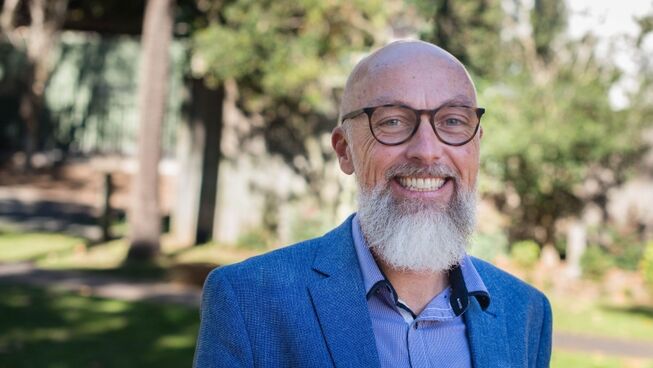Who is the worst employer; a Christian or an atheist?

Who is the worst employer; a Christian or an atheist? Which boss is most likely to razz you out for your beliefs by putting a sign above your desk mocking you either for your spiritual beliefs or lack of them?
Why are we even asking these questions? It seems like most of us have enough common sense, if not enough common dignity, to live and let live in our culture.
Yet at the moment in Australia, with discussion raging around the Government’s plans to introduce a religious anti-discrimination bill, the level of debate has bottomed out. Those opposed to the bill have first claimed that the introduction of religious freedoms legislation will unleash hostile believers just ready to abuse and insult unbelievers. This scenario was outlined in one of our major city’s newspapers. Under this bill, religious people will be allowed to abuse non-religious people. All they are waiting for is the green light. You can read that article here.
Next minute? The same newspaper is printing an article claiming that Christians probably have the most to lose because their atheist employers will have the opportunity under this bill to push their own atheistic views onto their workers. Yep, that’s right, under this bill, non-religious people will be allowed to abuse religious people. All they are waiting for is the green light. You can read that article here.
“Okay Mr Dickens, is it the worst of times or is it the best of times, it can’t be both!”
Is that how this thing works? Is that how society works? Are all Australians simply bigots who are sitting waiting for a green light to give them permission to do what they have so far been restricted from doing?
The fact is our current legislations permit both believer and unbeliever alike to do those sort of nasty things. Yet the fact that we are not doing them at any rate of knots seems beyond the understanding of those writing the newspaper articles.
There will always be situations in our country in which religious intolerance seeps over into everyday life. But to think that somehow everyone wants a fractured and intolerant society, or indeed that we suspect that those who do not think like us, are just waiting to pounce on us for our views, belittles us as a community.
If you are reading this and you are not Christian, then know this; the second article that says a great wave of atheistic bigotry will descend upon the country if the bill is introduced, does not treat you with any level of dignity. Christianity views all humans as made in the image of God and therefore created with equal value, dignity and worth. Yet not only created with those things, but also capable seeing those things in others, precisely because we are all made in the image of God!
In other words, Christianity does not look at other humans who do not believe what they believe and assume simply because they don’t that they are somehow dreadful people. And I assume that most people reading this who are not Christian, or not even spiritually minded in any way, don’t think that those who are spiritual or Christian are dreadful people.
True, the atheist may attribute their common humanity and desire for peace among their neighbours as a sign of evolutionary progress, while the Christian may attribute those things as a sign of God’s created design for humans, but both groups hold to that.
Besides we have other things in common with each other, things that lead us to want and work for human flourishing for all humans, not just those within our own special interest group. And once again the atheist evolutionary understanding of that is based in the need for common survival, while the Christian understanding is based on who God is and how He creates community.
So, given that we generally acknowledge these things, why would there be opposition to an anti-discrimination bill that specifically focuses on religion? Would we not wish for differences of opinion to be safeguarded, and for religious viewpoints to be more than just privately held?
The secular society we live in will flourish best when it allows diversity of opinion not simply in the private buildings where we worship or pray to our gods, but in the public settings of life.
The public square is where diversity of thought and opinion should be discussed, and where a mature community that can live with deep differences is forged. Without the ability to rub shoulders with people we disagree with we will end up socially anaemic. We will become the butterfly helped out of its chrysalis in the mistaken belief that to do so makes it stronger rather than weaker.
A diverse public square will help us rub off the rough edges from others, and allow others to rub off our rough edges, if we allow them. We all have blind spots and we all need others to point them out. Even those we disagree with.
Now your idea of heaven - even if you are not a spiritual person who believes in an afterlife - may be a place where no one ever gets in your way or ever disagrees with you. But one of Christianity’s best known writers, CS Lewis, of Narnia fame, saw that as the clearest example of hell.
In his book, The Great Divorce, a busload of tourists from hell arrive in heaven. And they cannot stand it. They cannot stand how real it is, and how interactive it is. They don’t arrive in heaven wanting to be there. They like hell. They like hell because it is like them! Grumbling, spiteful, hate-filled, always looking for the fault in others.
But more than that. For CS Lewis, hell itself is not a fiery pit of devils in red spandex poking screaming people with pitchforks. It’s worse. Hell is a town in which people live in houses by themselves, but who cannot get on with anyone else ever, and who move to other houses further away from their neighbours.
And because it’s hell, they keep doing this ad infinitum, until everyone is living lives of utter, and bitter, isolation from each other. Learning nothing, and unlearning everything. Destined forever to sink within themselves, to be alone with their thoughts and their own ideas, with no one to ever correct, or even encourage them with an alternate viewpoint.
My question: Why start hell now? Why start on that pathway while we still have the chance to live in communities in which we have to grapple with ideas we don’t like, or engage with people we don’t like. Without those things to shape up, or even stop us from being truly ourselves, we may just end up being truly ourselves, and we may not like what we find.
Liken it to the toddler having a tantrum because they don’t constantly get their own way. The short-term solution is to give that toddler their own way, and be rid of the immediate tantrum, yet risk an adult who has constant tantrums. That’s a nightmare, right?
The long-term solution is to hold your nerve, not give in, and shape a mature adult who is willing and able to adapt to situations which are not always to their liking, but who has coping strategies to deal with it.
That’s the kind of society we want. One in which we give space for people to disagree with each other without being shut down all of the time, and without people throwing a tantrum.


